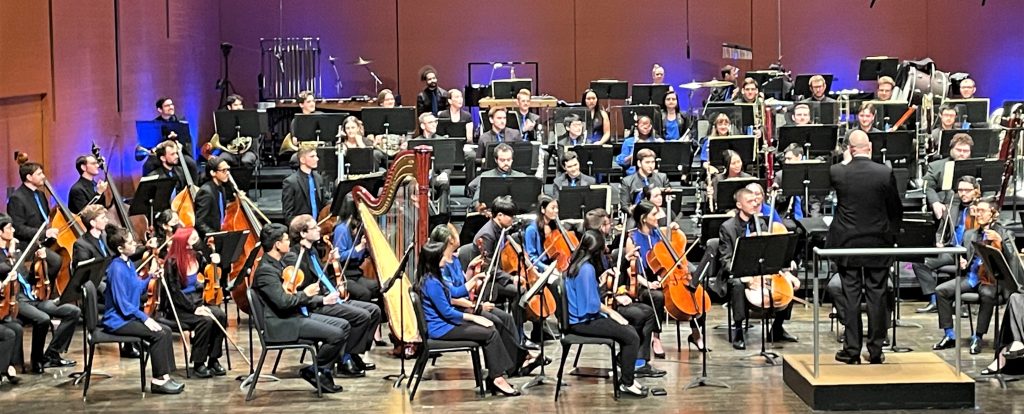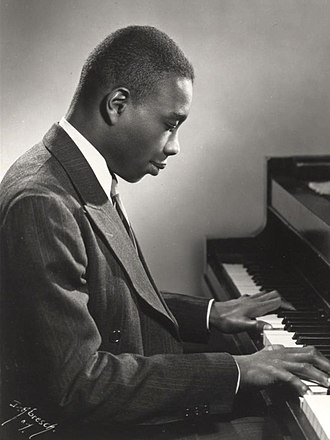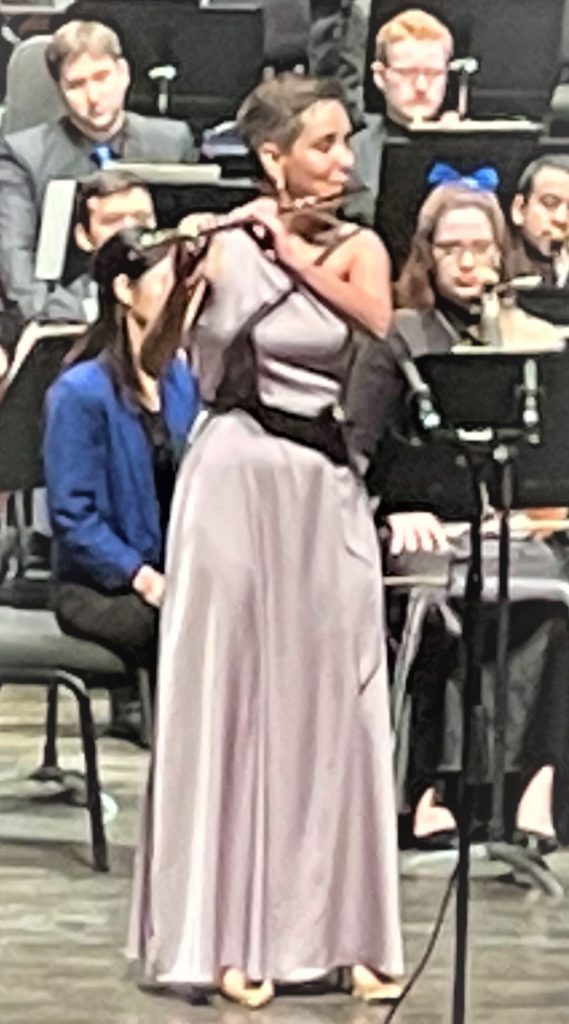
by Kevin T McEneaney
Last weekend there were two performances of Gustav Mahler’s Fifth Symphony; this master of narrative symphony, inspired by Dante’s Alighieri’s epic masterpiece, occupied the second part of the program at Sosnoff Theater, which opened with Soprano Samantha Martin singing four selections from George Theophilus Walker’s Lilacs, a series of songs based upon Walt Whitman’s poems, for which he won the 1996 Pulitzer Prize. Martin won the 2020 Bard Conservatory’s Concerto Competition singing Lilacs; her powerful voice ensures an operatic career to follow. I was impressed by “When lilacs last in the dooryard bloom’d” and shivered with joy at “O powerful western fallen star.”

Joan Tower’s 1989 Flute Concerto (1989), premiered at Carnegie Hall in 1990, provided an opportunity for flautist Andrea Abel to display her technical and emotional register to flourish in competition with The Orchestra Now. Opening with a solo in a low register (a surprise), the flute engages the orchestra in dialogue. The middle movement allows the flute a long solo in the upper register, as if letting the orchestra know what is possible with the flute—in this movement there are echoes of Debussy’s lingering shadow, yet we are moving beyond Debussy. Now that the orchestra knows what a great flutist may do, a wonderful agreement is reached with the orchestra which accompanies the flute to an impressive, smashing climax! This work exists both in a small orchestral version as well as larger symphonic version. I had heard once before the smaller orchestral version and was impressed, yet this larger orchestral version conducted by Joan Tower remains more memorably impressive. Abel displayed her complete command of flute registers!

Mahler, born in Bohemia (now in the Czech Republic), declared that his Fifth Symphony (1901-1905) had no program, but clearly that was a shrugging deception or composer’s joke. Structured as tripartite, it has five movements. The first movement is a marvelous funeral meditation on death with the dies irae motif, then the shocking and raucous descent into a fantastic underworld with howling oboes, dissonant horns, and thundering percussion. What a delicious howl! (That depiction may be the memory of his impoverished childhood.) The following purgatorial movement offers mischievous, amusing satire on the waltz which musicians are compelled to play repetitiously, instead of real music, which they would die for to play. The third structure offers Mahler’s serene vision of heaven, or rather a vision of his Beatrice, Alma Schindler, his beatific wife whom he married in 1902 when she was pregnant. This movement in its orchestral lushness may be the most eloquent apology for first courtship, then marriage, in the classical musical repertoire. To admit there was program to this work would have been an awkward embarrassment!

(Commentating on speculative apparitions in a writer’s mind remains common practice in literary critique, despite any obvious narcissistic handicap. In any case, it remains easier for painters to illustrate what a writer writes, yet with music this is not practical nor possible. Mahler’s tripartite division encourages the audience to conjure the primitive folklore of Egyptian teleology: hell/heaven transmitted to the Greeks and popularized by St. Augustine. The Celts thought such Manichean, either/or thinking to be simplistic and arrived at Purgatory, which Dante Alighieri celebrated as the lived life, while he satirized the concept of Hell (as did Homer before him and later Plato in The Republic, even though Plato loathed Homer and all poets, despite being a poetic-prose stylist). Since logic itself remains triune thinking (and according to Hegel the triple dialectic of history), the Celtic early Medieval revival of Greek learning (still obscure in its origin) popularized the concept of Purgatory about the sixth century, which prevailed by the 10th century. To clarify common sense, Dante wrote his personal, entertaining, satiric Inferno about a decade after Hell was declared doctrine by the Papacy.)
Like Dante, Mahler’s musical epic remains a personal quest for truth in life. The Orchestra Now under Dr. Leon Botstein delivered an outstanding performance with unified, gossamer moments, and thunderous achievement!